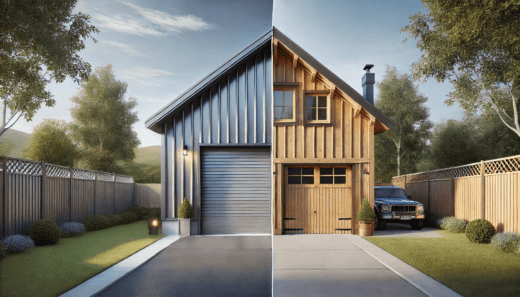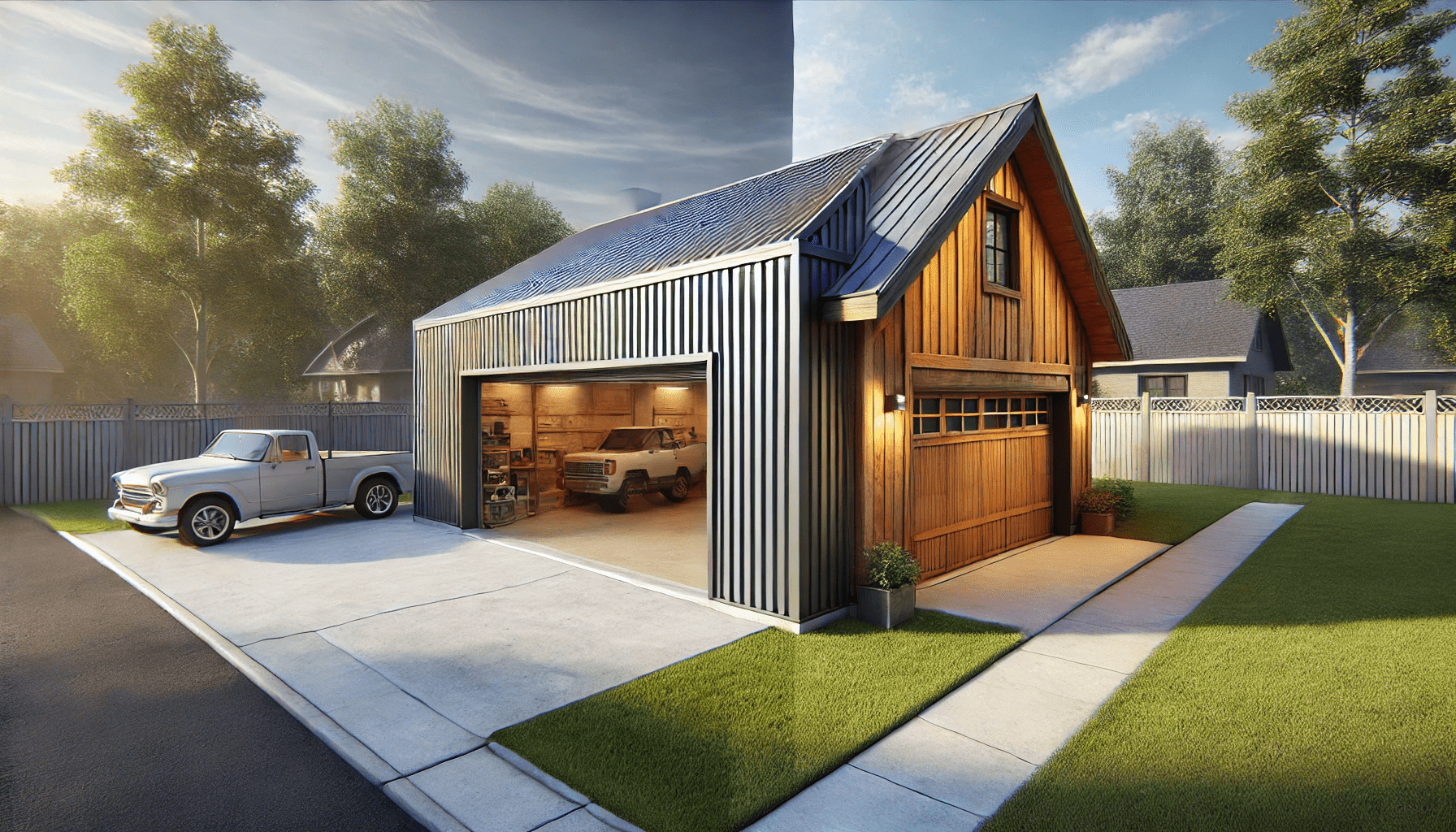A garage is more than just a space to park your vehicle; it’s a valuable addition to your property that can serve multiple purposes. Whether you’re looking to build a simple car shelter or a multifunctional workshop, choosing the right type of garage is crucial. The two primary options you’ll encounter are metal garages and wood garages. Understanding the differences between these structures can help you make the best decision for your needs.

Metal Garage vs. Wood Garage: A Comprehensive Comparison
When it comes to selecting a garage, metal and wood are the most common materials used. While both have their benefits, metal garages often offer superior advantages in terms of durability, maintenance, and overall cost-effectiveness. Let’s explore how these two options compare in key areas.
Noise Reduction
One of the often-overlooked aspects of choosing a garage material is how it handles noise. If you plan on spending a lot of time in your garage, whether for work or leisure, the noise factor can significantly impact your experience. Metal garages are known for their ability to provide excellent noise isolation, especially when insulated. This insulation not only reduces the sound of external noise, like rain, but also helps contain the noise from power tools inside the garage, ensuring a more peaceful environment both inside and out.
On the other hand, wood garages, while offering a degree of noise insulation, may not provide the same level of soundproofing as metal structures. The natural properties of wood can sometimes amplify noise, making it less ideal for those who require a quieter space.
Insulation Efficiency
Insulation is another critical factor, particularly if you live in an area with extreme weather conditions. Proper insulation can help maintain a comfortable temperature inside your garage, regardless of the season. Metal garages, when properly insulated, offer superior temperature control compared to wood garages. The insulation materials used in metal garages can be tailored to resist both heat and cold, ensuring a stable environment inside.
While wood also has natural insulating properties, it doesn’t offer the same level of temperature control as metal. Over time, wood can warp or crack due to temperature fluctuations, potentially compromising the insulation effectiveness and increasing the need for repairs.
Maintenance Requirements
When comparing metal garages to wood garages, maintenance is a significant factor to consider. Metal garages require minimal maintenance, primarily involving periodic inspections, cleaning, and occasional lubrication of moving parts. These tasks are generally simple and infrequent, making metal garages a more convenient option for busy homeowners.
In contrast, wood garages demand more frequent maintenance. Wood is susceptible to damage from moisture, pests, and environmental factors, requiring regular treatments and repairs. This ongoing upkeep can be time-consuming and costly, especially after severe weather events.
Durability and Longevity
Durability is perhaps the most crucial factor when deciding between a metal or wood garage. Metal garages are built to last, offering exceptional strength and resistance to various environmental hazards. The high tensile strength of steel makes it an ideal material for structures that need to withstand harsh weather conditions, such as heavy snow, high winds, or even fire.
Wood garages, while sturdy, are more vulnerable to damage from natural elements. Over time, wood can deteriorate due to exposure to moisture, insects, and rot, leading to structural weaknesses. This reduced durability means wood garages may require more frequent repairs or replacements, increasing the overall cost of ownership.
Safety and Security
When it comes to protecting your belongings, safety and security are paramount. Metal garages provide superior protection against break-ins and environmental damage. The inherent strength of steel makes it difficult for intruders to breach, while its resistance to fire, termites, and rot ensures that your valuables remain safe over time.
Wood garages, while offering some level of security, do not match the resilience of metal structures. The vulnerabilities of wood, such as susceptibility to fire and pest infestations, can compromise the safety and security of your garage.
Conclusion
When weighing the options between a metal garage and a wood garage, metal garages clearly come out on top. They offer better noise reduction, superior insulation, lower maintenance requirements, and unmatched durability. Additionally, metal garages provide enhanced safety and security for your belongings, making them a wise investment for any homeowner.
If you’re looking for a garage that will stand the test of time and offer reliable protection with minimal upkeep, a metal garage is the right choice for you. Investing in a metal garage not only adds value to your property but also gives you peace of mind knowing that your structure is built to last.


